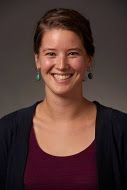Amy Jones

Graduate School attended: University of Minnesota
Graduate Degree or expected: Master of Public Health, Epidemiology
Undergraduate School attended: Pacific Lutheran University (Tacoma, WA)
Undergraduate Degree or expected: Bachelor of Arts, Biology and Sociology
Specific Area of Interest within Field: Social Epidemiology, Program Evaluation
Hometown: Anacortes, WA
Read Amy's July 8th, 2016, February 10th, 2017 and March 10th, 2017 blog post here
Why did you want to be a Kruse Communities of Excellence Scholar?
After working in direct service positions for three years, I learned a lot about my community in Minneapolis and the social support systems that are in place and saw many of the ways that they fail to address deeper systematic disparities. I spent a lot of my time forming partnerships with other organizations that serve the same community, and learned of the power of collaboration across sectors to make an impact in a community. I wanted to be a Kruse Communities of Excellence Scholar because the community-oriented, Health in All framework in which Communities of Excellence approach health promotion is a framework that I hope to learn all I can about in order to incorporate it into my future work.
What have you learned about community collaboration and leadership through this scholarship?
One conversation that I have found particularly interesting regarding Communities of Excellence is how we identify stakeholders and how do we identify community leaders - both formal and informal. Often public health initiatives focus on top-down, data-driven approaches, with the idea that the “professionals” know what’s best for the community. But without full community buy-in, policies will always fall short. In conversations with Kruse Scholars, I have begun to better understand the challenge as well as the need for greater community collaboration by ensuring that the community is at the table when decisions are being made.
In what ways will you bring systems and quality thinking to your future career?
I am interested in pursuing a career in Program Evaluation and Health Impact Assessments. In particular, working with Health Impact Assessments will allow me to collaborate with stakeholders from all sectors and from communities and engage in conversations around the intersections of education, transportation, health, criminal justice, infrastructure, and all other aspects that shape the community. I hope to utilize Health Impact Assessments to frame the work of other sectors in a way that recognizes how it will affect all aspects of the community, including health.
What is your vision for a “community of excellence”?
My vision for a community of excellence is one that relies on collaboration of stakeholders and shared goals to drive efforts to eliminate disparities and create an equitable opportunity for all members in education, work, and health. I envision a community that evaluates themselves and their work, recognizes the shortcomings and the persistent disparities that exist in their community, engage in meaningful conversations priorities and goals, and implement policies and programs in all sectors that
What are you most passionate about in your community?
In my community, I am most passionate about creating greater equity in access to healthy food. I have worked at a few farmers markets, and worked for a while in the Supplemental Nutritional Assistance Program and was often frustrated by the lack of adequate infrastructure to support low income families in accessing healthy food. I believe this is an issue that can’t be tackled by federal food support programs alone, but needs the support of local businesses, agriculture, education systems, transportation, and more and look forward to seeing systems thinking incorporated into food security to a greater extent in my community.
How do you plan to contribute to spreading “communities of excellence” across our country now and in the future?
I am interested in pursuing a career in Program Evaluation and Health Impact Assessments. In particular, I aim to bring the work of Communities of Excellence into a Health Impact Assessments context. Health Impact Assessments similarly require the collaboration of stakeholders from all sectors and from communities to engage in conversations around the intersections of education, transportation, health, criminal justice, infrastructure, and all other aspects that shape the community. I hope to utilize the Communities of Excellence Framework in conjunction with Health Impact Assessments to frame the work of other sectors in a way that recognizes how it will affect all aspects of the community, including health.
FUN FACTS
What is/was your favorite class?
Social and Urban Health Policy(taught by Theresa Osypuk).
What are your favorite hobbies by the season?
Riding, fixing, building bicycles (and teaching others to fix their bicycles) in all seasons!
What is something unique about you?
I have four amazing brothers spread across the country with talents ranging from computer programming to biomedical sciences, to carpentry. They made for a very fun childhood.
Favorite place you been to?
I spent a week in Istanbul with my history buff of a father and was blown away by the small snippets of history that I was able to see first hand.
Where would you like to live?
Despite being born in Minnesota, and having lived in Minnesota for nearly four years now, I consider myself to be a Pacific Northwesterner after living there for ten years and can’t wait to move back there someday in the future!
